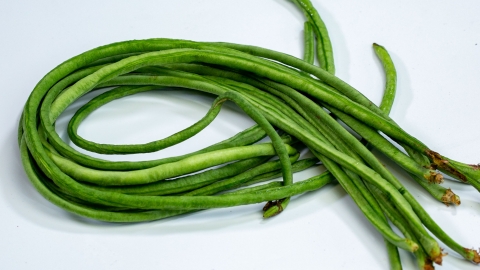Can onions and yardlong beans be eaten together?
Generally speaking, onions and cowpeas can be consumed together, but in moderation. The detailed analysis is as follows:

Cowpeas are rich in dietary fiber, protein, vitamin C, vitamin K, potassium, iron, and other minerals, and can help promote digestion, regulate blood sugar levels, and enhance immunity. Onions are rich in sulfides, flavonoids, vitamin C, and dietary fiber, and possess antibacterial and anti-inflammatory properties while also helping reduce the risk of cardiovascular diseases. When combined, the pungent aroma of onions can enhance the sweet taste of cowpeas, while the crisp texture of cowpeas adds depth to the flavor of onions. This combination is suitable for stir-frying, cold mixing, or stewing dishes.
However, please note that cowpeas must be thoroughly cooked to remove the beany smell and destroy saponins present within; it is recommended to blanch them or stir-fry for an extended period until fully cooked. Onions should not be overcooked to prevent excessive evaporation of their pungent components, which may affect flavor. Additionally, both cowpeas and onions are low-calorie, high-fiber ingredients that pair well with lean meats, tofu, or whole grains to enhance satiety and nutritional balance.
Although onions and cowpeas can be consumed together, special populations should adjust their intake according to individual conditions. People with sensitive digestive systems should be mindful of the pungency of onions; it is recommended to cook onions thoroughly rather than consume them raw. Patients with gout should control their cowpea intake, as cowpeas contain certain levels of purines, and excessive consumption may worsen symptoms. Individuals with kidney insufficiency should monitor cowpea intake due to their potassium content to avoid excessive intake. Additionally, both onions and cowpeas are rich in dietary fiber, and excessive consumption may cause bloating or diarrhea. It is recommended to adjust intake according to individual digestive capacity. If you have any concerns or discomfort, please seek timely medical advice.




